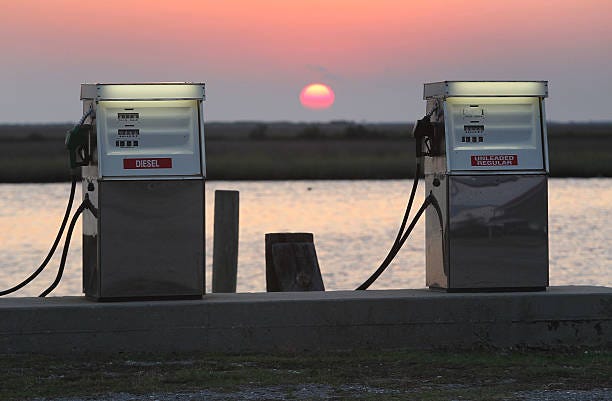
“Drill, baby, drill.” It’s a mantra we heard again and again throughout Trump’s 2024 campaign.
But what does it mean for the state of Louisiana specifically?
With the ushering in of each new presidential administration, the change in policy proposals can drastically effect many industries. With the manufacturing of gas and coal being the two largest industries in Louisiana, it’s critical to ask how the incoming Trump administration plans to deal with US energy.
The new Gulf Coast Energy Outlook report says Louisiana could see some major energy transition projects. Today I interviewed Greg Upton from the LSU Center for Energy Studies about these opportunities for the state.
Below is an edited transcription of the above audio interview.
How is the energy policy in Louisiana set to change under the Trump administration?
Greg Upton: There are three things on the table that we’re looking at in terms of potential policy changes that may come when President Trump takes office next year. The first is the Inflation Reduction Act and the Infrastructure Investment and Jobs Act, which put billions of dollars into many of these energy programs that impact Louisiana.
Then there are tax credits for wind and solar. We also have the 45 Q tax credit, which is for carbon sequestration. There's a rulemaking for hydrogen tax credits. And so what we're seeing are billions of dollars of investment in Louisiana tied to these federal tax credits. So that's kind of question number one, is will these tax credits continue?
What happens if the credits go away?
Greg Upton: If tax credits are scaled back or go away, that could certainly impact specific projects. I was actually in D.C. last week talking with several congressional staffers and different congressional offices. One of the things that someone said was that the new administration is really going to, “Take a scalpel to the IRA.” And so that was information that, hopefully, for these projects, implies there won't be too many changes with energy.
There’s also the end of these supply restrictive policies. Of course, we had the LNG export permitting pause we’ve discussed several times, and the offshore leasing pause that you and I have discussed. These supply restrictive policies are policies restricting the ability to supply hydrocarbons to the market. I think it's a pretty safe bet those won’t continue under a Trump administration.
Is green energy a burgeoning industry for the state of Louisiana?
Greg Upton: We're seeing a lot of utility-scale solar investments moving forward in the state. When I look at the cost of other utility-scale solar relative to the prices of electricity. I think that the federal tax credits certainly are helping that, and I think solar is moving a lot faster because of those federal tax credits. But that's one that it’s not surprising that you're seeing a lot of investment there. You've got offshore wind, which I think is a few years out. It’s a bit higher cost right now. So you're seeing several projects moving forward and a lot of the planning associated with it. But electricity prices today are low because natural gas prices are very low.
There are also industrial decarbonization efforts. Louisiana is a very emissions-intensive state because we produce products like liquid fuels, chemicals, plastics, and fertilizers, all of these products that use a lot of energy to produce and are also very emissions-intensive. So we're seeing very large investments in carbon sequestration, hydrogen production, biobased feedstocks, or biofuels.
